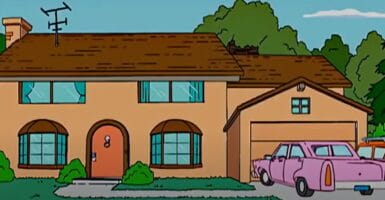Mother Nature Would Make Short Work Of A Zombie Outbreak
This article is more than 2 years old
 With the massive success of AMC’s The Walking Dead and this past summer’s surprise hit World War Z, zombies are big business. Indeed, the shambling/sprinting undead seem to have taken pop culture by storm, to a degree that I think most of us have engaged in a fun little thought exercise where we think about our plan and survival chances should the zombie apocalypse ever really happen. And sure, we know it’s never actually going to, but it’s fun to think about, right? Well, now science has arrived to rain on our decomposing parade by positing that it wouldn’t be chainsaws or machetes or molotov cocktails that would save us from the undead — it would be nature itself.
With the massive success of AMC’s The Walking Dead and this past summer’s surprise hit World War Z, zombies are big business. Indeed, the shambling/sprinting undead seem to have taken pop culture by storm, to a degree that I think most of us have engaged in a fun little thought exercise where we think about our plan and survival chances should the zombie apocalypse ever really happen. And sure, we know it’s never actually going to, but it’s fun to think about, right? Well, now science has arrived to rain on our decomposing parade by positing that it wouldn’t be chainsaws or machetes or molotov cocktails that would save us from the undead — it would be nature itself.
National Wildlife Federation naturalist David Mizejewski recently took to BoingBoing to deconstruct any notions of a zombie apocalypse with a step-by-step breakdown of how any brain-hungry undead wouldn’t have a chance against the forces Mother Earth already has in play, from birds to reptiles to mammals. And that’s not even getting into the issue of “the decomposers.”
In The Walking Dead and George Romero’s classic films, zombies are slow, lumbering creatures who aren’t that dangerous one on one, but frequently overwhelm a victim simply through sheer force of numbers. In more recent years we’ve seen more of the “fast zombie” variant, as seen in World War Z. The two types of zombies obviously present different types of threats to human survivors, but it’s generally a given that zombies aren’t smart. They act on pure instinct and hunger, and they have no sense of self-preservation. If they see a fresh meal, they’ll keep walking forward until they hit an obstacle. Even if you set one on fire, it’s just going to keep trying to eat you.
So, as frightening as the prospect of being chased by zombies might be, consider what zombies look like to nature: stupid bags of carrion who aren’t smart enough to defend themselves against skilled hunter animals such as bears, wolves, coyotes, or mountain lions. These animals’ habitats aren’t limited to remote forested areas, either — coyotes and mountain lions range into urban areas. Even against a group of zombies, these fierce creatures could likely hold their own through sheer size, swift and ferocious attacks, or through cooperative hunting in packs. You especially don’t want to be a zombie in Mexico, which harbors a perfect zombie-killer: the jaguar. As Mizejewski explains:
Jaguars also hunt by stealth, and have a special technique to quickly dispatch their prey: a skull crushing bite to the head, delivered with their huge canine teeth. A jaguar bite delivers 2,000 pounds of pressure per inch, the most powerful mammalian bite on the continent. That, combined with a killing technique perfect for dispatching zombies, makes the jaguar its natural predator.
Zombies would also be in deep trouble if they roamed into territory frequented by alligators or crocodiles. Their strength and ferocity would make short work of the undead, and their hide would likely mean any zombie counter-attacks would be futile and short-lived before the reptile tore the hapless undead apart. Even some types of turtles would pose a threat to a zombie horde:
Any zombie that lumbered into fresh water ponds, lakes streams or swamps would likely fall prey to aquatic turtles too, who, with their beak-like jaws, would feast on zombie flesh. Painted turtles, river cooters and sliders of all sorts make carrion a part of their normal diet. To the undead, it would be a second ‘death by a thousand bites.’
But the biggest threat to a zombie apocalypse is one that has been sitting in plain sight from the get-go. Zombies are dead, or at least dead-ish, and there’s an entire strata of life on this planet that is designed specifically to dispose of dead things — “nature’s diminutive clean-up crew,” as Mizejewski puts it. Even a massive zombie horde would be helpless before the army of maggots, fungi, molds, and flesh-eating insects that would turn them into a walking buffet. These aren’t things zombies would have any defense against; they probably wouldn’t even realize it was happening.
In the end, much like the Martians in War of the Worlds who were felled by common Earth bacteria, the undead would meet their match in the humblest of creatures. It’s a testament to our own arrogance that all of our zombie fiction focuses on how we as a species could resist the undead threat. In the end, Mother Nature would take care of her own.
You can read Mizejewski’s full article right here.












